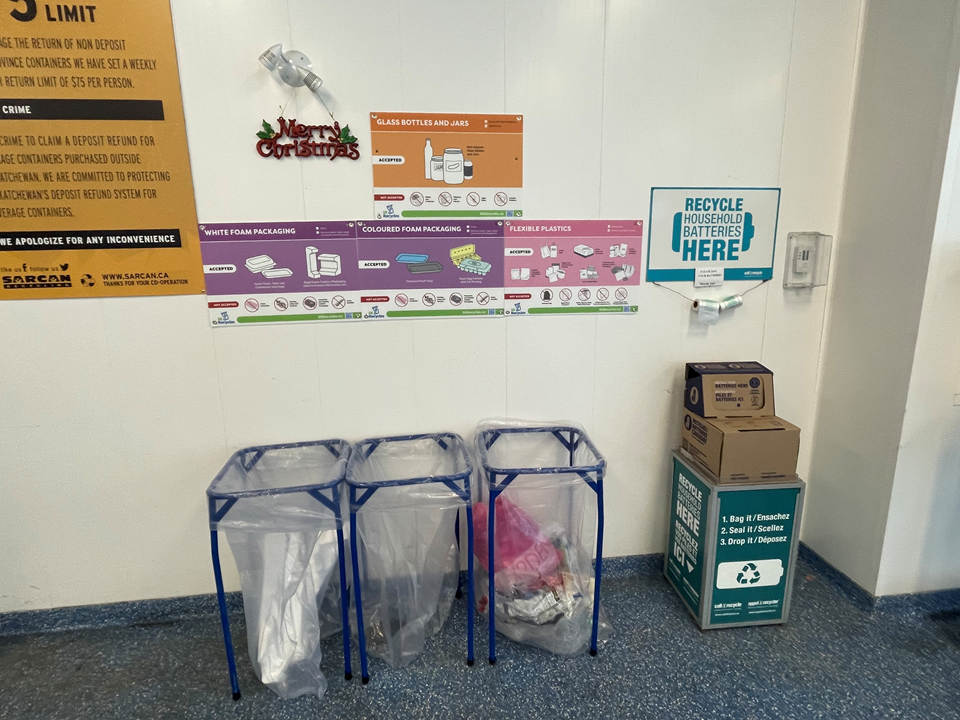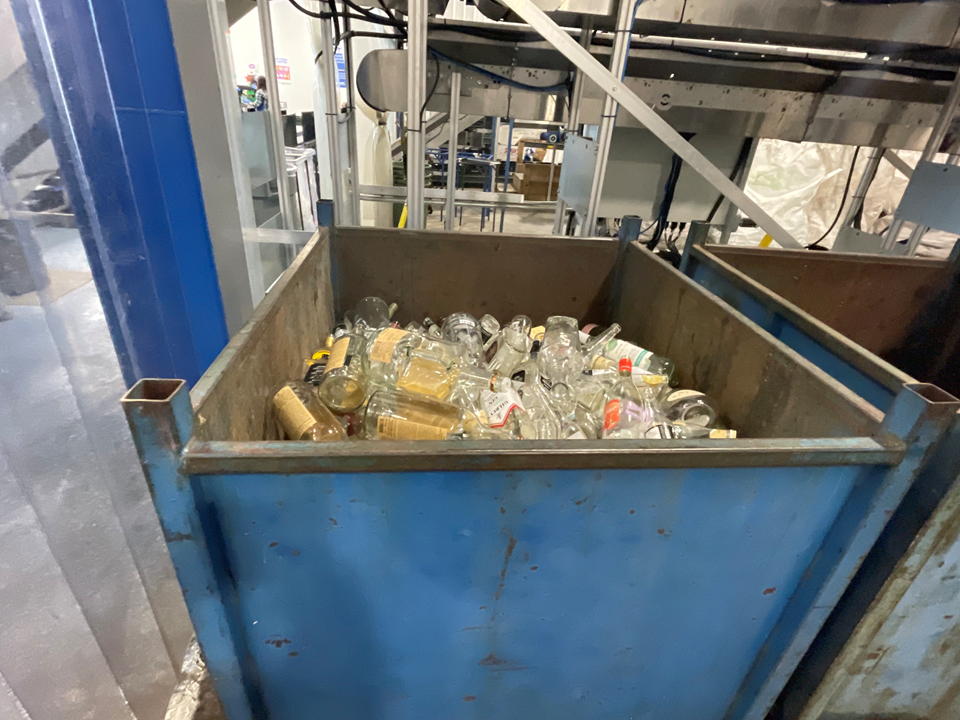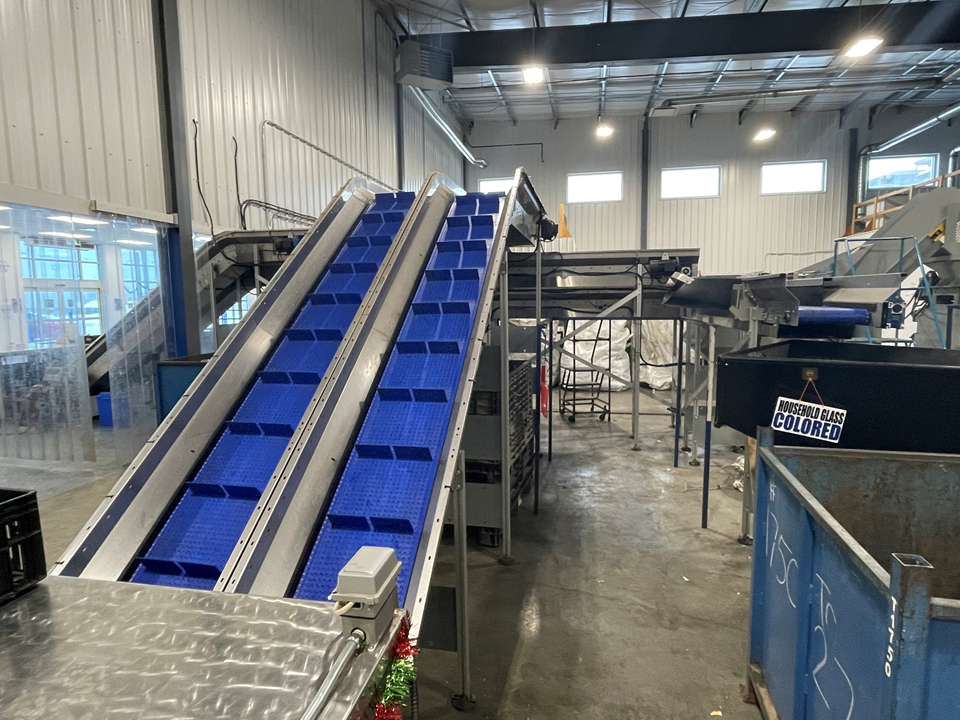REGINA - It has been several weeks since SARCAN introduced it’s new recycle bins for materials that can be reused in different ways.
These materials include non-deposit glass bottles and jars, flexible plastics, foam packaging, and non-deposit glass bottles.

Jane Hubbard-Richards, communication and culture coordinator with SARCAN, discussed the amount of new recyclables they have received since they started accepting the new materials.
"We've seen a lot of it [the new materials]. It's coming in. Once it comes into the depot and we send it to our processing plants, there's one in Regina [and there is] one in Saskatoon. The material is flowing through to them. They're bailing it. We're getting quite a bit of it in. There is excitement in the air around these materials. People are excited that there's a responsible recycling solution for this stuff," said Hubbard-Richards.
The new initiative is a partnership between SARCAN and SK Recycles, a non-profit group that is responsible for household paper and packaging management and recycling that is distributed to homes in Saskatchewan through businesses.
SARCAN relied heavily on research and feasible studies to come up with the need for new materials to be recycled. Part of the research they conducted was looking into B.C recycling methods, which, at the time, was the only province in Canada that was accepting flexible plastic packaging, foam packaging, and non-deposit glass bottles and jars. This led to SARCAN wanting to have a chance for people in Sask. to also recycle these materials.
The benefit of SARCAN accepting these new materials is to ensure they can be reused rather than either break while being recycled or cause issues at facilities.
"Glass, [for example], is accepted in some of the blue box systems throughout the province. However, even in those places where it is accepted, many of the times it's going to break, its glass, [which can break easily]," said Hubbard-Richards.

Another material, flexible plastic, "is a very lightweight [material]. It doesn't get captured through the sorting process in a lot of those facilities, as well as causing issues [when it gets jammed up in machinery and coming off of lines. And just a messy process if it's in intermingled blue box systems," she said.
Rather than having materials be wasted, SARCAN sends the recycled materials to other places in Saskatchewan and across Canada that get turned into different materials.
"So [the] flexible plastic packaging [that SARCAN recycles], it goes to Merlin Plastics in B.C, where the rest of our plastic goes. We also have a plastic market in Alberta through Merlin that they collect all of the material, or we ship all of our materials downstream to them, where they will further process it, they flake it, chip it, and [then] they melt it down and turn it into plastic pellets. And so those plastic pellets are a replacement for raw virgin resin that manufacturers can use to make new materials, like new plastic bottles, new flower pots, plastic pails, plastic lumber," said Hubbard-Richards.
Hubbard-Richards also pointed out foam goes through various processors in Western Canada, which is used for construction material. Meanwhile, glass jars are sent to Potters [Canada] in Moose Jaw, then shipped to Alberta, where the glass eventually gets turned into tiny glass beads. Those beads are used to make road marking paint, which helps keep drivers safe at night.
The material used from recyclables saves a ton of energy and emissions from the earth’s natural resources. According to Hubbard-Richards, "SARCAN remove[s] the equivalent of 11,000 vehicles off the road annually in terms of emissions. So offsetting greenhouse gas emissions and harmful emissions that enter our environment when compared to using those raw materials. And we save enough energy to power close to 10,000 homes. So you know, like a city the size of Swift Current or Moose Jaw for an entire year [that] can be powered by the energy savings of these [materials]."
While those numbers may not jump out to some people, Hubbard-Richards feels it shows "we're doing the right thing, and we're keeping this material in use, and we're using less."
While SARCAN sees a high number of products recycled, Hubbard-Richards mentioned there is can be some confusion regarding what items can be recycled now.
This could lead to items being misplaced in the wrong bins, being dumped in landfills, causing more pollution and causing more un-renewable energy to be used.
Because of this, Hubbard-Richards feels, "there's a lot of work being done to make that more efficient and more known throughout [the province]."
As for what SARCAN is working on, they're currently focused on making sure the new items are being handled properly.
Even though SARCAN has no plans to introduce new materials that can be recycled, Hubbard-Richards mentioned, "I think it's safe to say that if it makes sense for us to bring in a new type of material or something that isn't currently being captured, we will always take the time to look at it and see if it fits within our organization and our system and try and find the best solutions. I don't know what we have on the horizon, but I'm sure there's something."
For more information regarding what items can be recycled and how to recycle them, visit




